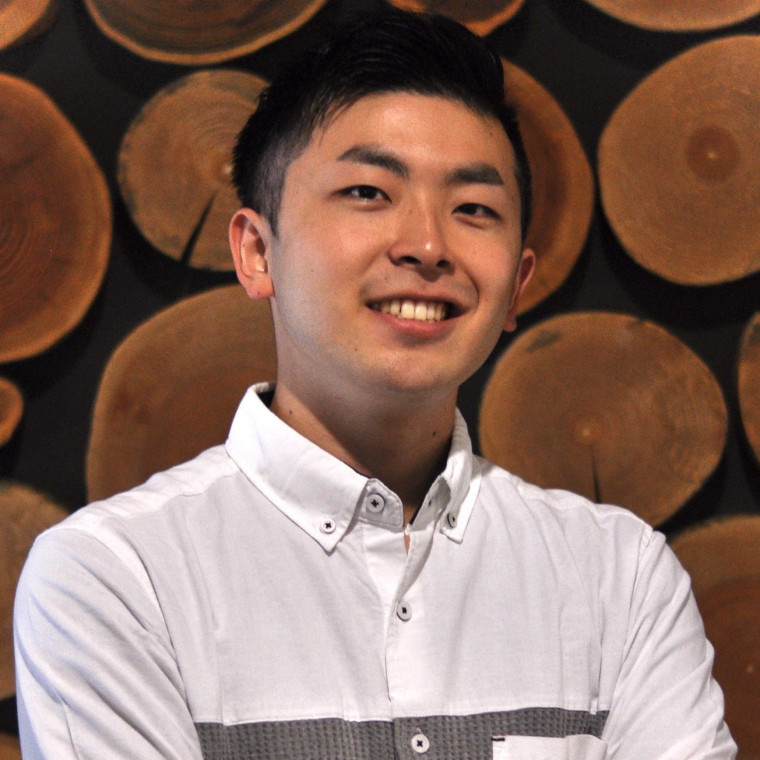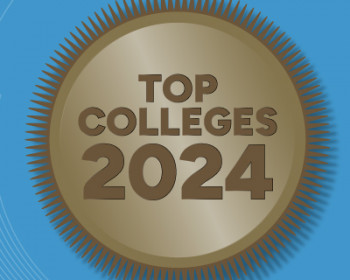Minami Yamauchi
I truly learned a lot from the fantastic opportunities that the liberal arts education enabled me to pursue.

Pronouns
Degree and Class Year
Hometown
Current City
Major
Minor
Extracurriculars
Overseas study
Internship
Continuing Studies
What three words would you use to describe L&C?
What made you want to come to Lewis & Clark?
Growing up in Japan, where university classes are known to be huge and one-sided lectures, I was interested in the small-sized classes where the professors and students can build a class closely together. Another important deciding factor is L&C’ support for international students; since it was my first time ever to come to the U.S., such kind of support meant a lot for me back then. And of course, the beautiful campus of L&C was definitely one of the best attractions!
What have you been doing since graduation?
Since graduation, I came back home and was preparing for a hectic graduate school application because my next step in life is to pursue a master’s degree in the U.S. It’s been almost 6 years since the last time I was home for this long time, and it’s amazing to be able to see the beautiful Japanese nature of four seasons once again. Since I luckily got an offer from my dream school, I will be back in the U.S. for the fall 2023 to pursue my master’s degree.
How did Lewis & Clark prepare you for your job?
The rigorous thesis required for the sociology and anthropology (SOAN) major has definitely prepared me for my graduate school. Although writing a 54-page SOAN senior thesis was definitely my biggest academic challenge ever, I now appreciate how not only it equipped me with important research skills and familiarized me with a certain expectation of a scholarly study, but also it helped me clarify my exact academic interest to pursue in my master’s degree.
What would you say is the most important thing you learned at Lewis & Clark?
This may sound like a cliché, but I seriously mean it - I truly learned a lot from the fantastic opportunities that the liberal arts education enabled me to pursue. I personally prioritize my intellectual curiosity to delve into any and every learning opportunity that interests me no matter if it is related to my major or career. The flexible liberal arts education allowed me to literally take any course of my interest as long as I was capable of designing a reasonable graduation plan. Apart from my major in SOAN, minor in Hispanic studies, and other required courses, I was also able to explore education, viticulture/oenology, linguistics, musical history, DAW composition, Japanese tea ceremony, and more. Due to such a wide variety of courses being available, it was amazing to be able to formally learn what I would want to learn for my hobby. For this reason, I barely felt like I am obligated to study anything at all at LC, having what I learnt and what I wanted to learn always aligned.
Why did you major in sociology and anthropology?
I came to Lewis & Clark as a prospective International Affairs (IA) major. Because I was interested in education in the international context, I thought IA would be a great place to explore the dynamics of countries and how that results in establishing distinct education systems. However, after I took a class of sociology, which was an academic subject I had never studied before, I realized how the dynamics in human societies can be so subtle yet so impactful that many factors that form the foundation of education systems have a lot to do with sociology. Basically the unfamiliar sociological concepts dissected how human societies have been formed in the way they are today for me in such a vivid way. I realized that the US was one of the most ideal places for me to learn sociology given the complexity and diversity of the society, and I had no reason not to take advantage of this unique opportunity. Therefore, soon I decided to switch to SOAN major.
If applicable, why did you minor in Hispanic Studies?
I started learning Spanish in my high school in Armenia as part of the IB Diploma Program due to my interest in Hispanic culture and the large size of the speaker population which would enable me to communicate with a number of people I meet around the world. I continued to study Spanish at LC as I wanted to develop my Spanish further and eventually study abroad in Spain.
How do you describe the liberal arts?
The liberal arts to me is, if I may choose a little unusual wording, an all-you-can-eat restaurant for academic disciplines. You have all the freedom and flexibility to pursue whatever academic discipline in the way you wish. In my opinion, the way you specialize in an academic discipline is not necessarily by delving into only one subject, but rather by finding a very unique intersection among multiple academic disciplines in the way only you would do. As much as this may sound counterintuitive at first, it is not the case in reality once you experience the perks of the liberal arts education firsthand.
What was your favorite class? How did it expand your knowledge?
I had a number of favorite classes at LC but if I have to choose one that impacted me a lot, it would be SOAN 296: Wines and Vines by Professor Deborah Heath. The course was about viticulture and oenology, and it covered a lot of fascinating topics in viticulture and oenology. I got really into this field of study when everything got closed down due to the pandemic and I got a lot of time to spend at home. I originally started teaching myself viticulture and oenology and decided to formally learn it in class, and that is when I found Deborah’s class in LC’s course catalog. I learned a lot from the course, but also it rather impacted me more after I completed the coursework; As I love seeing different parts of the world firsthand, I have been studying, working, and traveling to nearly 23 countries around the world so far. Because wine making culture is very common throughout the globe, I realized how wine is not merely a beverage but functions as a versatile analytical tool to explore the countries and regions I visit through the cultural, historical, and geographical perspectives.
Where did you find your community on campus?
I mostly found my campus community through the international student and TCK community (It could also be called the International Students and Scholars or ISS community). LC is very welcoming and supportive to the international students and TCKs, and the ISS community was very close-knit. You can always feel like you know where to go and who to ask for whatever you need, as various help is always available in this community. The great part is that the ISS community didn’t only connect me with peers from international or TCK backgrounds, but also with peers from the US who are very open and welcoming to international or TCK backgrounds. I always felt at home with this close-knit community at LC and will continue to be grateful for it even after I graduated.
If you studied overseas while at Lewis & Clark, how did you choose your program?
Although I chose to study abroad in Granada, Spain, it was actually not my original plan. As I wanted to level up my Spanish as much as possible, I decided to aim for language intensive programs, instead of regional area study programs. Therefore, I always wanted to study abroad in Alicante where the language intensive program had been available. However, the Alicante program unfortunately got canceled through the pandemic, and I had to drastically change my study abroad plan right before it happened. As the Granada program became the new language intensive program, I decided to take the opportunity. Though this decision was originally the result of an unprecedented change, I can confidently say that I would make the same decision even if I were to go back in time.
What did your overseas study add to your L&C experience?
One of them is definitely the great learning opportunity of the language and the culture. I have been to many countries in my life, but whether I speak the language of the country or not always changes my whole experience during the stay regardless of how long it is. The fact that I had a whole 3 years at LC to prepare myself for the linguistic and cultural immersion experience in Spain was really amazing. It enabled me to pursue every single learning opportunity in Spain and maximize my intellectual curiosity; as a part of language intensive program coursework, I got to take Sociology of Education, a course offered for regular Spanish students at University of Granada. The learning experience from vibrant class discussions with local students from across Spain enlightened me with fascinating insights on the sociological analysis of education from unique Spanish perspectives. As my academic interest had been focused on education, I also had a chance to intern at a local K-12 school to teach and conduct empirical research on international comparative education. I culminated my Spanish improvement in passing DELE B2. Lastly, not only did I put effort to engage with Spanish language in academic/professional contexts, but I also wanted to appreciate the Kingdom of Spain manifoldly. As I had become devoted to wine studies through the pandemic and Spain was one of the best countries to explore the complex realm of wine, I decided to take advantage of living in Spain and dive in to learn about Spanish wine. I took weekly extracurricular classes on advanced viticulture and enology at University of Granada, offered for local winery owners. As I got fascinated by Sherry wine, which is one of the world’s most famous fortified wines, I took solo trips to Jerez, the mecca of Sherry wine, to visit several long-established wineries and learn the traditional wine-making skills unique to Jerez. With wine as an interdisciplinary analytical tool, I got to explore and learn about Spain through cultural, historical, and geographical perspectives. These multidisciplinary experiences I had in Spain definitely made me appreciate how much LC had offered to me.
More Admissions Stories
Admissions is located in Frank Manor House on the Undergraduate Campus.
MSC: 32
email admissions@lclark.edu
voice 503-768-7040
fax 503-768-7055
Vice President of Admissions and Financial Aid
Eric Staab
Admissions
Lewis & Clark
615 S. Palatine Hill Road MSC 32
Portland OR 97219

